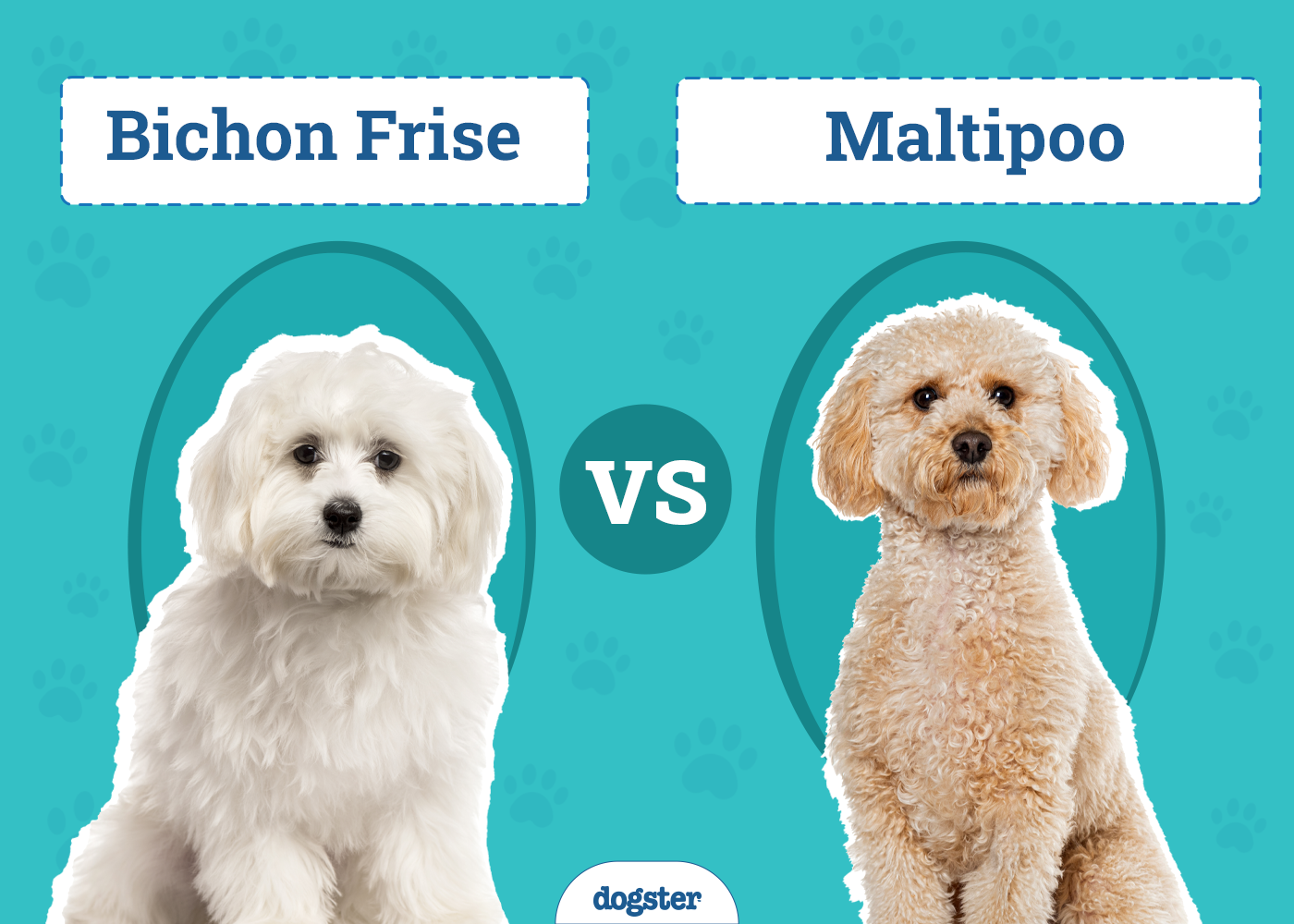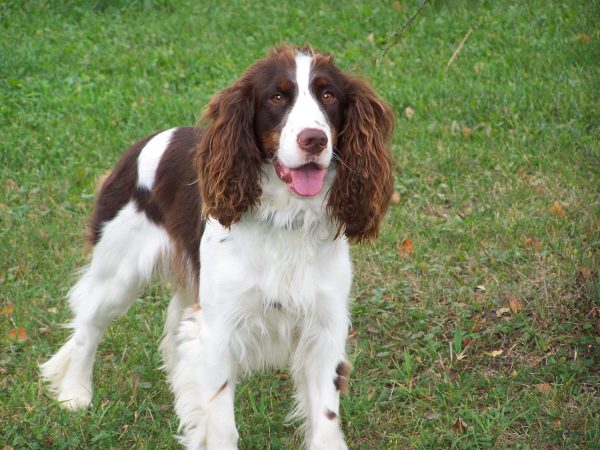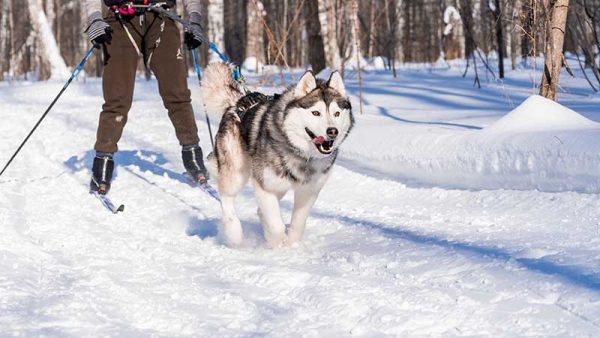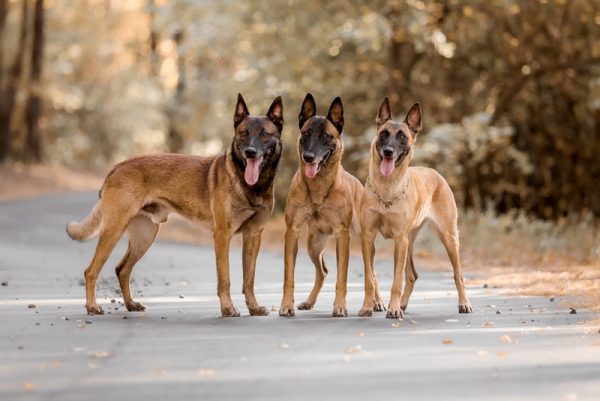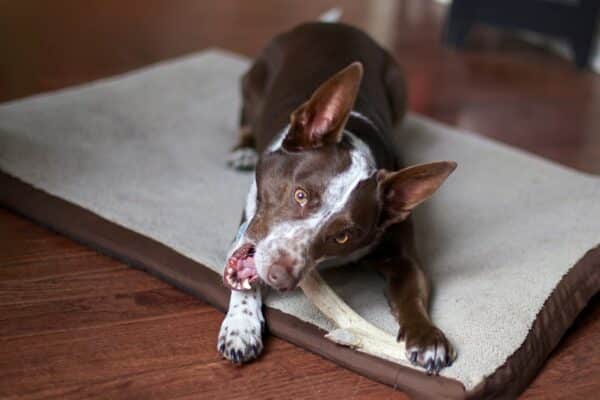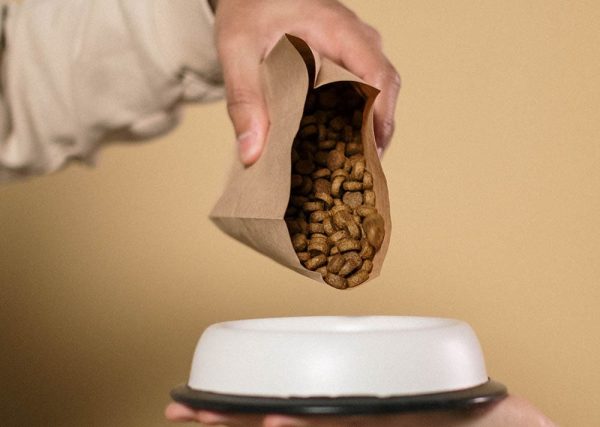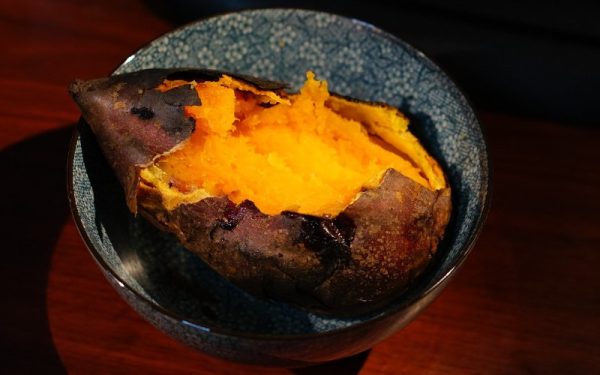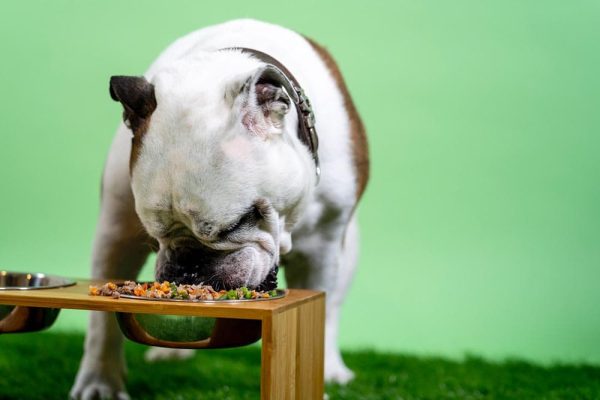In this article
View 3 More +Small dogs have their advantages, particularly if you live in an apartment or condo. Choosing between the Bichon Frise and Maltipoo is not exactly the easiest decision, given that there are many similarities between the two breeds. They both make wonderful companions and look similar in appearance, but there are also a few differences.
Here, we take a closer look at the Bichon and Maltipoo, including their similarities and differences between them. This way, you can compare and get to know them better, which will hopefully make your decision easier.

Visual Differences
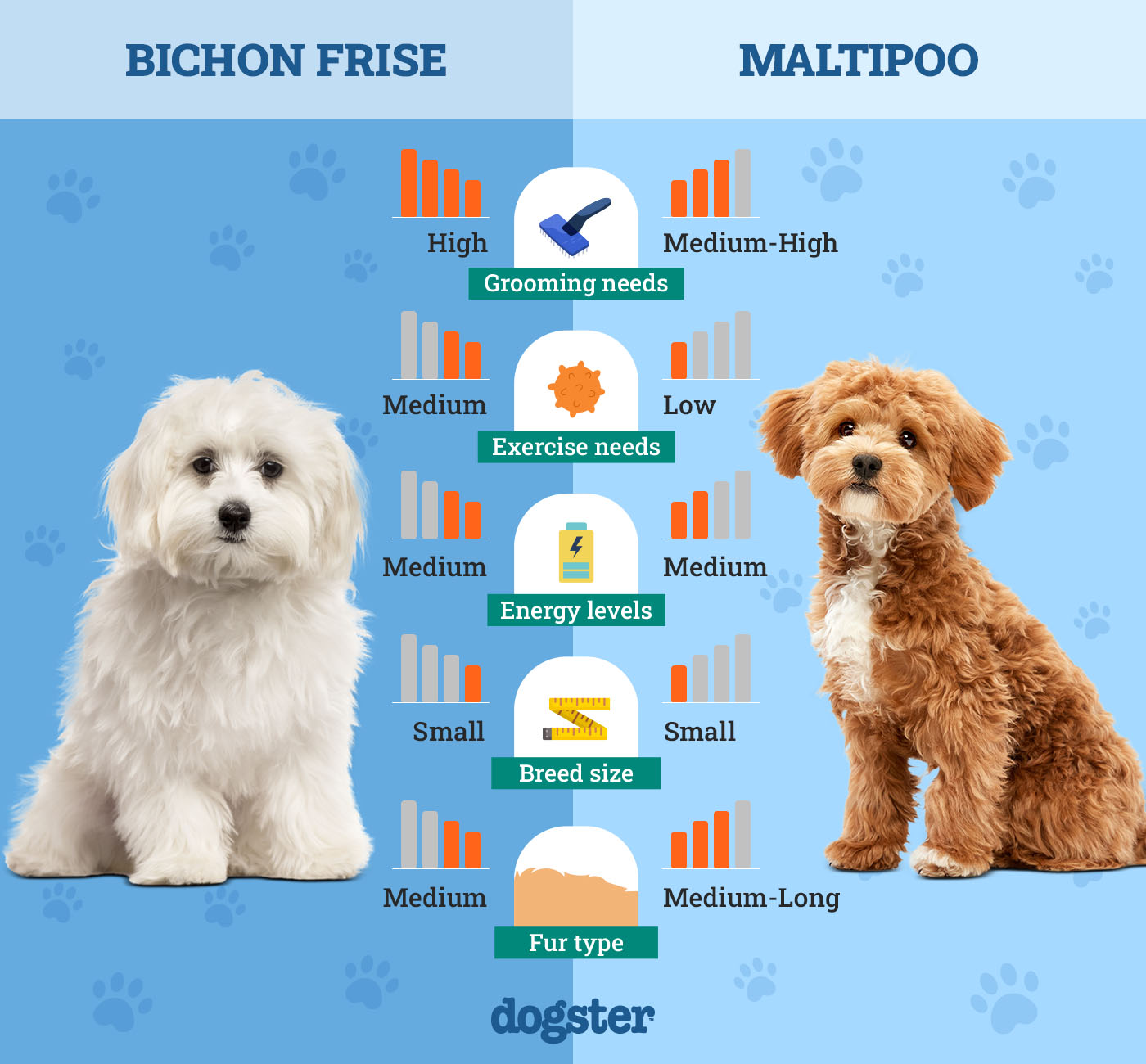
At a Glance
- Average height (adult): 5–11.5 inches
- Average weight (adult): 12–18 pounds
- Lifespan: 14–15 years
- Exercise: 30–60 minutes a day
- Grooming needs: Moderate to difficult
- Family-friendly: Yes
- Other pet-friendly: Yes
- Trainability: Intelligent, eager to please, challenging to housebreak
- Average height (adult): 6–14 inches
- Average weight (adult): 5–12 pounds
- Lifespan: 12–15 years
- Exercise: 30–60 minutes a day
- Grooming needs: Moderate to difficult
- Family-friendly: Yes, with older children
- Other pet-friendly: Yes
- Trainability: Intelligent, eager to please, quick learners

Bichon Frise Overview
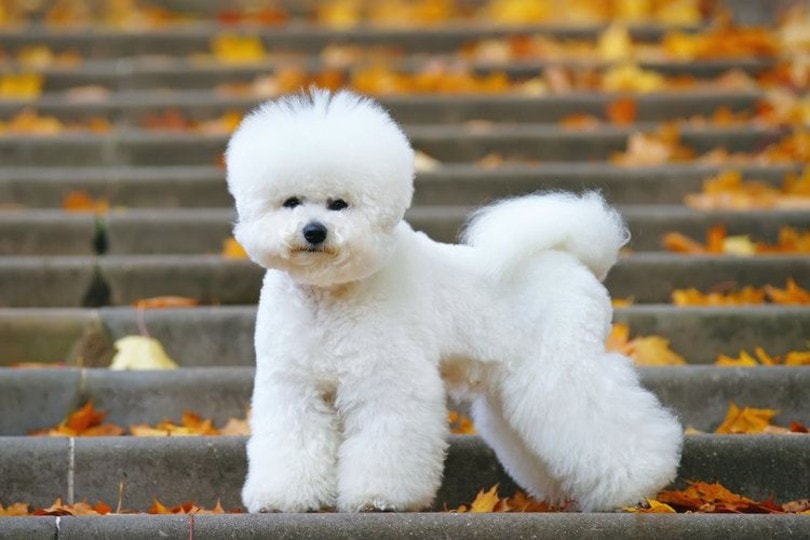
The Bichon Frise is thought to have originally come from the Canary Islands and was brought over from France by French sailors. They became popular with European nobles in the 1200s, particularly in Italy, France, and Spain.
Bichons are members of the Barbichon family, which includes the Bolognese, Havanese, and Maltese. So, they share a small part of their ancestry with the Maltipoo.
Personality / Character
Bichons are energetic and playful dogs with plenty of charm and personality. Their background as royal lapdogs has given them an entertaining and loving temperament. They make wonderful family pets and get along well with children and other pets.
Bichons are confident dogs and love just about everyone they meet. While they make excellent watchdogs by alerting you to anything out of the ordinary, they are happy to meet just about anyone, even strangers. In other words, they are not guard dogs.
Training
Bichons are intelligent, inquisitive dogs that love to learn and are eager to please, which makes them quite trainable. Like with all dogs, keep the training consistent with short, daily sessions, and use only positive reinforcement.
Unfortunately, they have small bladders, so housetraining the Bichon is more of a challenge compared to many other breeds. You’ll need to take them out quite frequently to ensure that there are no accidents.
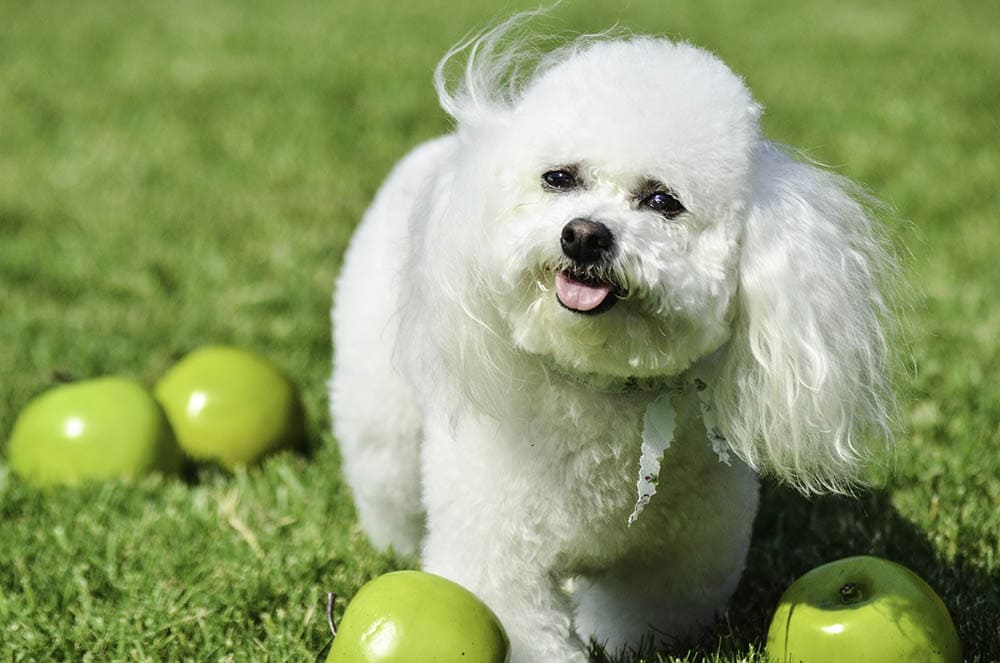
Exercise
Bichons are small dogs, so they don’t need much exercise. They are happy to spend time just lounging around, but they will have quick bursts of energy, so they will need active playtime with you every day in addition to walks.
Take your Bichon for two walks every day for about 20 minutes each time to give your dog the right amount of exercise.
Health & Care
You’ll want to provide your Bichon Frise with a high-quality diet formulated for small dogs at their current age and activity level. Regular wellness checks with your vet will help ensure that they are eating the proper diet and if any changes are in order.
Grooming the Bichon is more of a challenge than with some other breeds. They have a double coat of curly white hair, but the good news is that they aren’t significant shedders, so they might be good for allergy sufferers. They need daily brushing and a bath once a month. Plus, their coats grow, so they’ll also need a monthly visit to the groomer.
- Diabetes
- Corneal dystrophy
- Cataracts
- Bladder stones
- Gum disease
These conditions won’t necessarily occur in every Bichon, but as a dog owner, it’s best to be familiar with any potential medical problems that might arise.
Suitable For:
Bichons are perfect for apartments and small houses, and they fit right in with families with or without other pets. On days with lousy weather, they can get exercise through playtime in the living room.
They do bark but aren’t known to be overly yappy. They are also sociable and friendly and love to meet new people. That said, they tend to develop destructive behavior when left alone for too long.
Also, be prepared for high-maintenance grooming, which will usually include frequent trips to a groomer.
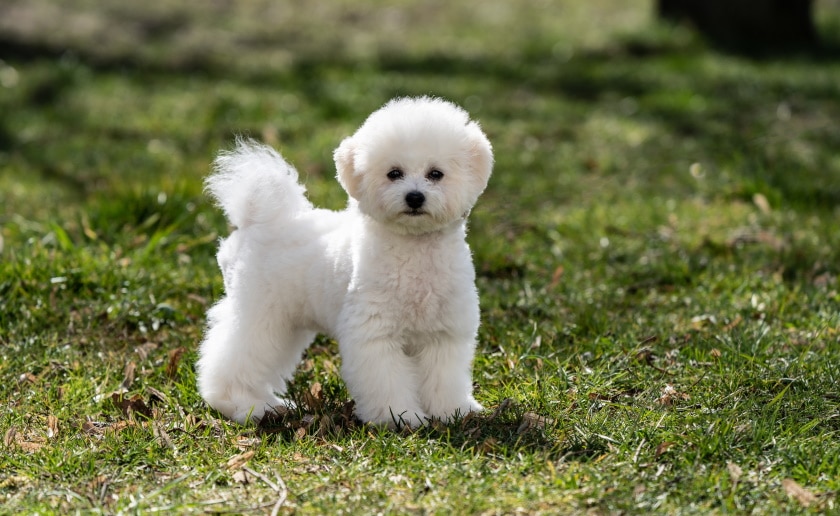

Maltipoo Overview
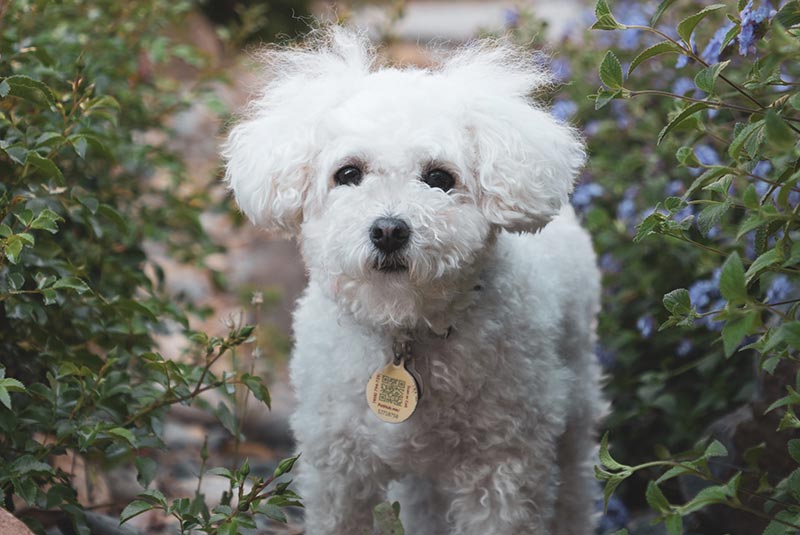
The Maltipoo is a popular crossbreed from the Miniature or Toy Poodle and the Maltese. Crossbreeds don’t typically have the same history as purebreds and are often called designer dogs. Maltipoos were originally bred as companion pets for allergy sufferers and have only grown in popularity since.
Personality / Character
The Maltipoo’s temperament depends on what parent they take after the most. Regardless, they tend to be friendly and social and love being around people. This also makes them outgoing, and they get along well with children and pets.
However, due to their small size, they shouldn’t be around young children because the Maltipoo could accidentally get hurt.
Maltipoos are playful and affectionate and love walks and playtime just as much as a good cuddle on your lap. Like the Bichon, they make good watchdogs by alerting you to anything unusual, but don’t expect them to protect you and your family.
Training
This breed makes an excellent dog for a first-time dog owner because they are quite easy to train. Maltipoos are eager to please and intelligent, so they can be fast learners. They do get distracted relatively easily, so be sure to keep the training sessions short but interesting, and provide positive reinforcement.
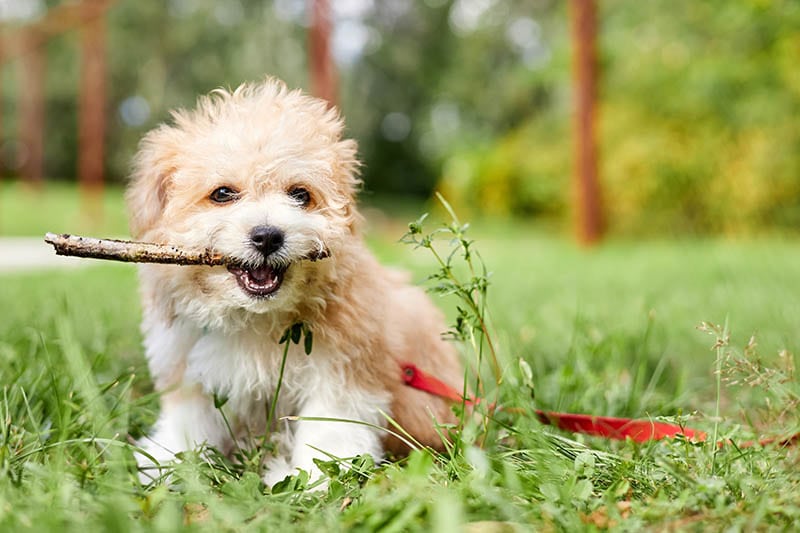
Exercise
Maltipoos need 30 minutes to an hour of exercise every day, which should include two walks and playtime. They are small enough to be exercised indoors if going outside isn’t an option on certain days.
Health & Care
Like the Bichon, the Maltipoo needs high-quality dog food meant for small dogs and their current age and activity level. Food made for small breeds gives them the right balance of nutrients to support their specific needs, and the kibble size is small enough for tiny teeth.
Grooming the Maltipoo is somewhat similar to that of the Bichon, though it depends on which parent they take after. If their coat has taken after the Maltese, they will need daily brushing. But if they are more like the Poodle, they can be brushed at home but will need to see a groomer about once a year.
The parents of the Maltipoo, the Maltese and the Poodle, are considered “hypoallergenic,” which also makes the Maltipoo a good choice for allergy sufferers.
- Shaker syndrome
- Gum disease
- Liver shunts
- Corneal ulcer
- Luxating patella
- Epilepsy
Suitable For:
Maltipoos are small so they can live in small spaces, and they make amazing family dogs, but only in families with older children. They also tend to be active, so you’ll need to spend time playing and walking with them.
They make great dogs for novice dog owners because they are easily trained and are quite lovable and playful. They also get along well with other pets.
Keep in mind that their coats and temperament might vary depending on what parent they take after the most. But either way, they will be an excellent option for people with allergies.
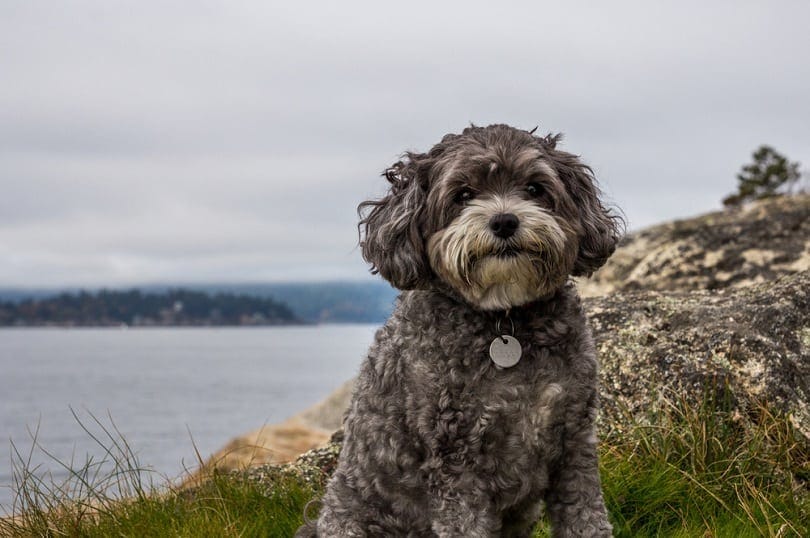

Which Breed Is Right for You?
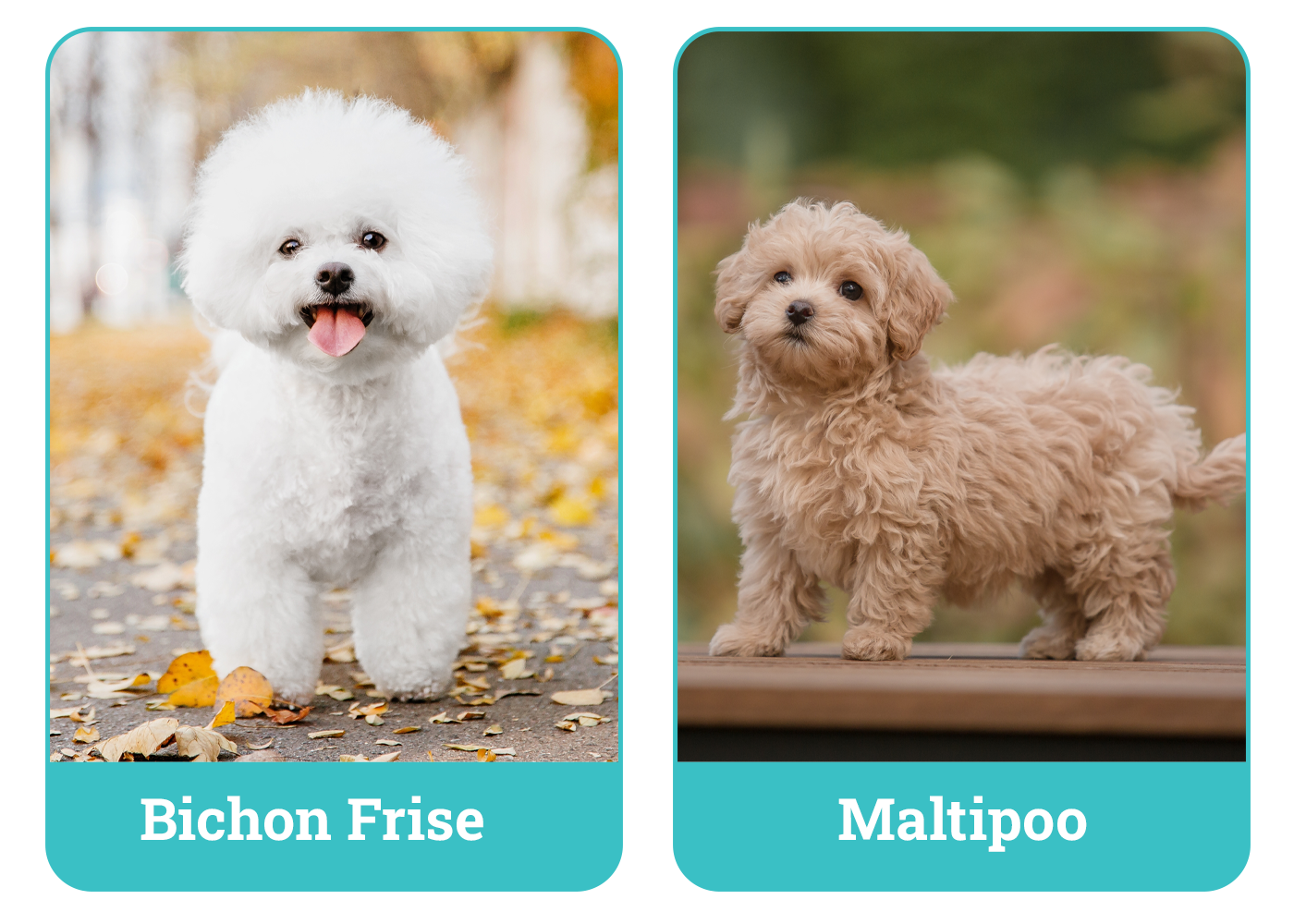
The Bichon Frise and Maltipoo are both small dogs, but the Maltipoo tends to be smaller (depending on what size their Poodle parent is). Young children aren’t recommended around very small dogs.
Appearance-wise, Bichons are always white, while the Maltipoo can be almost any color because Poodles come in a wide variety of colors. Both breeds are sociable, friendly, and affectionate. They are great with other pets, children, and strangers and are relatively easy to train. But the Bichon might struggle more with housetraining. Neither breed needs much exercise, but the Maltipoo tends to be more active and might need extra playtime. The Bichon can be energetic but tends to be more mellow.
Bichons require grooming, so more time and money will be spent there, but the Maltipoo also requires a fair amount of grooming, just not quite as much. Bichons need more attention from their owners than Maltipoos. They are more prone to separation anxiety, though both breeds need someone home most of the time.
Both breeds are excellent companion dogs that are hypoallergenic and don’t need much exercise. You really can’t go wrong with either the Maltipoo or the Bichon Frise!
- Related Read: Bichon Frise vs Havanese
Featured Image Credit: (Top) Radovancev Zarko, Shutterstock | (Bottom) Alex Boc, Shutterstock
